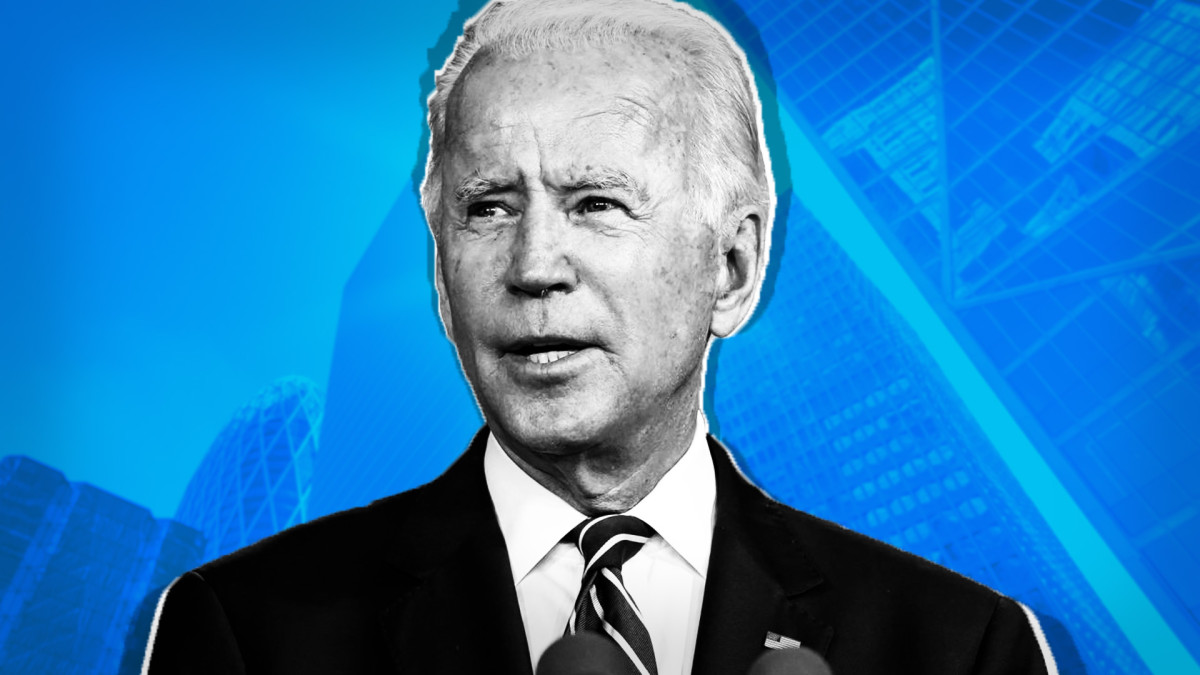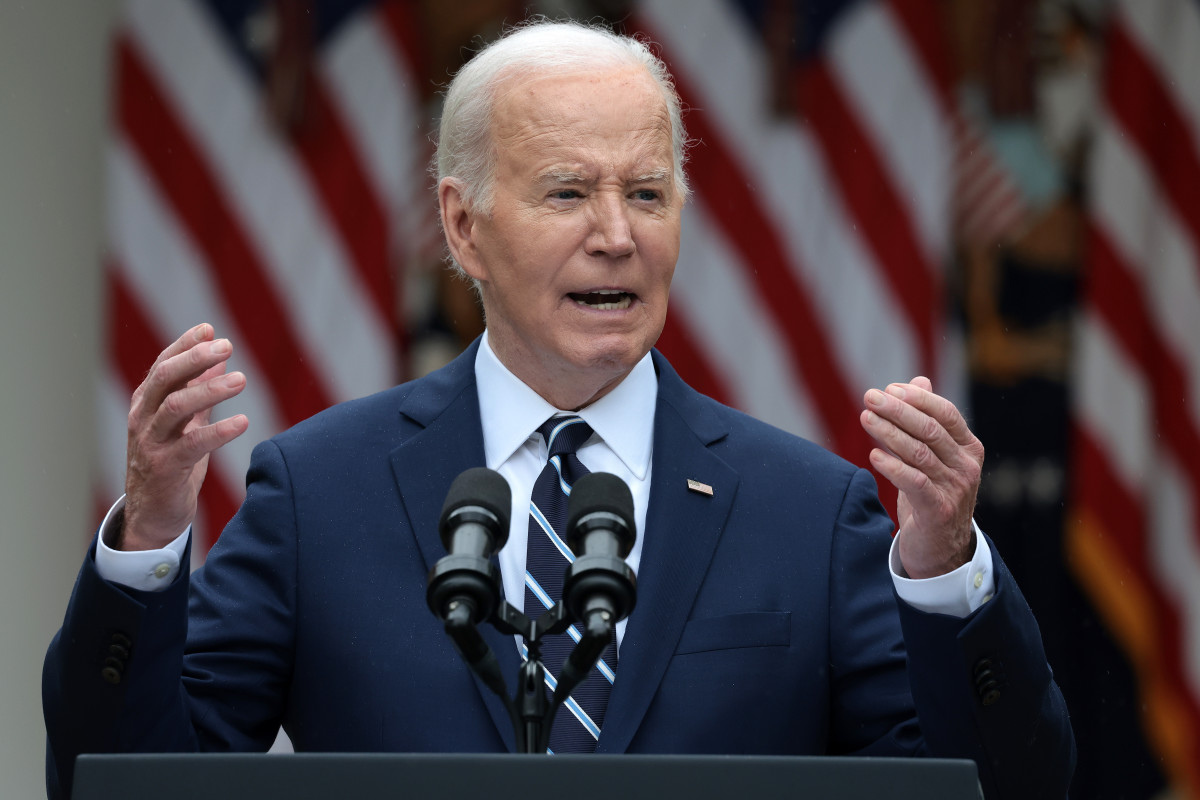
As his time in the White House quickly winds to a close, President Joe Biden has doubled down on artificial intelligence (AI) policy.
Last week, President Biden announced plans for three regulatory tiers that would severely curb AI chip exports to several nations with whom the U.S. has troubled relations. Today, the White House announced plans to take this global AI initiative even further, leading to an outcry from the tech sector.
💰💸 Don’t miss the move: SIGN UP for TheStreet’s FREE Daily newsletter 💰💸
One leader in the AI space quickly voiced displeasure, publishing a statement on the AI framework plans. In it, one of the company’s public policy leaders laid out why he sees them as detrimental to the growth of both AI and American industry in general, highlighting potential consequences that the Biden administration’s plans could pose.
This Biden plan stands to significantly impact U.S.-based chipmakers, including Nvidia NVDA, said Ned Finkle, the company’s vice president of government affairs, in a statement published on Nvidia’s blog today. Nvidia condemned Biden’s new rules of AI and predicting that they will pose negative consequences.
However, Donald Trump is about to return to the White House and as such, the future of AI policy remains uncertain.

Biden’s plans for AI draw backlash from Silicon Valley
What exactly is the Biden administration planning with regard to AI? In a statement published today, the White House laid out its plans for the global AI framework, noting the role that AI plays in both national security and economic power.
Classified as the Interim Final Rule on Artificial Intelligence Diffusion, it serves to address what the White House describes as “the responsible diffusion of U.S. technology.” Much of the framework centers around who U.S. companies can sell chips to and how many they can send to others.
Related: President Biden makes critical decision for major tech market
“To enhance U.S. national security and economic strength, it is essential that we do not offshore this critical technology and that the world’s AI runs on American rails,” the statement notes. “It is important to work with AI companies and foreign governments to put in place critical security and trust standards as they build out their AI ecosystems.”
According to Nvidia's Finkle, these new AI policy proposals were “drafted in secret and without proper legislative review,” though he does not provide any sources for these accusations. He focuses primarily on what these new rules would mean for Nvidia and for the AI field in general. In his words:
“This sweeping overreach would impose bureaucratic control over how America’s leading semiconductors, computers, systems and even software are designed and marketed globally. And by attempting to rig market outcomes and stifle competition — the lifeblood of innovation — the Biden Administration’s new rule threatens to squander America’s hard-won technological advantage.”
Finkle notes that while the Biden administration clearly sees these AI diffusion rules as an “anti-China measure,” he does not see them enhancing U.S. national security.
More Tech Stocks:
- Meta has a new vision that could change both AI and social media
- A fierce technology battle erupts within Donald Trump's fanbase
- 5 quantum computing stocks investors are targeting in 2025
Rather, he predicts that they would serve to compromise U.S. competitiveness on a global scale, ultimately undermining innovation from companies such as Nvidia.
U.S. AI policy under Trump
While these new rules on AI diffusion certainly seem poised to impact the industry, it is important to note that under Trump, U.S. AI policy could shift dramatically. The incoming president could easily decide to take this area of policy in an entirely different direction.
In the statement, Finkle praised Trump’s first administration as laying the groundwork for the first “strength and success” that the AI field has experienced in the years since then.
Related: Nvidia CEO Jensen Huang's blunt words on quantum computing spark backlash
“As a result,” he states, “mainstream AI has become an integral part of every new application, driving economic growth, promoting U.S. interests and ensuring American leadership in cutting-edge technology.”
Finkle acknowledges that these new rules for AI will not be enforceable for 120 days, by which time Trump will have ascended to the presidency. And since Trump will be closely advised by tech sector leaders such as Elon Musk and David Sacks, it is likely that his administration will favor measures that don’t limit AI.
Even if these policies are carried out, though, some experts believe that things won’t be as bad for U.S. AI companies as they might appear or as Finkle predicts they will be.
Ryuta Makino, Research Analyst at Gabelli Funds discussed the Biden administration’s new rules for AI chip exports, speculating that “there may be ways to get around the restrictions at least for the tier 2 countries.”
“I believe it will be a roadblock but won’t consider it “Significant,” he states, referring to the set of AI diffusion rules.
Related: Veteran fund manager issues dire S&P 500 warning for 2025







